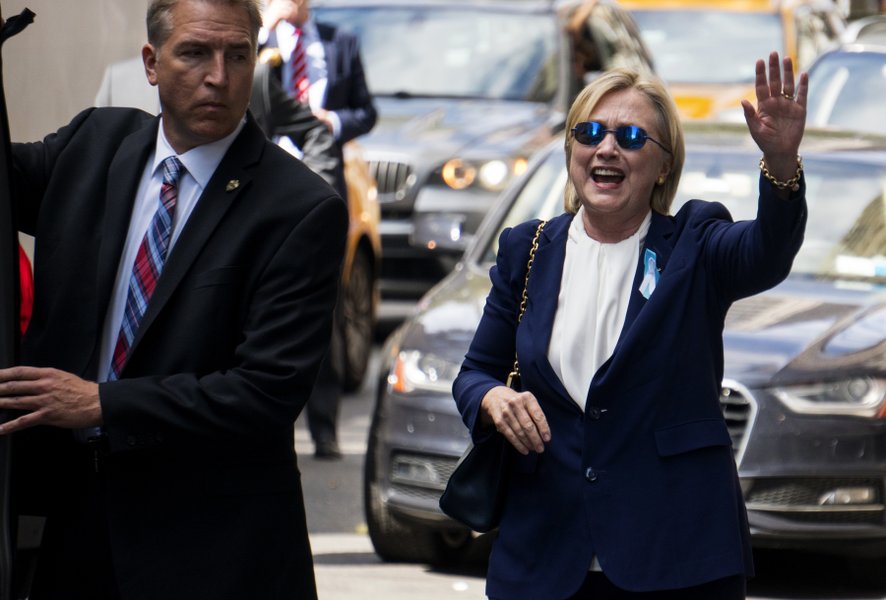Despite Hillary Clinton’s recent slip in the polls, she has a big political opportunity, even though some of her advisers might regard it as a curse: She can run as the candidate who represents the “mainstream” leadership of both parties and knows how to fix our broken political system.
In a year when anti-elitism has been a dominant theme in both parties, donning this establishment mantle might appear to be a mistake for Clinton. But let’s be honest: Her strength is that she’s the voice of experienced, centrist leadership. She’s not a convincing populist: The more she tries to sound like one, the more she risks coming off as a phony in the final two months of the campaign.
Because Clinton can’t escape her mainstream pedigree, perhaps she would be wiser to try to turn it to her advantage — and explain to voters how she, as someone who deeply understands the system, would try to break the Washington logjam and make government work again for the country. If you’re thinking slogans, try: “Change, from the inside out.”
Running from the center in a polarized country has its risks, to be sure. But Clinton’s current strategy, a sort of Bernie Sanders Lite, doesn’t seem to be working very well, even against a radically unqualified GOP opponent. A CNN poll released Tuesday showed Trump ahead by 1 point; other polls vary widely, but the average compiled by RealClearPolitics shows Clinton ahead now by just 3.3 percent, less than half the margin she had after the July conventions.
A Clinton strategy that played more on her governing experience would have three basic components. The first would be the mass defection of leading Republicans from GOP nominee Trump. Fifty former top GOP foreign-policy officials signed a letter in August warning that Trump would be “the most reckless” president in U.S. history. Republican business leaders have been less vocal, but there’s a deep unease in the broad moderate wing of the party that’s loyal to former president George W. Bush, 2012 presidential nominee Mitt Romney and House Speaker Paul D. Ryan (Wis.).
Trump’s response to the GOP elite’s defection has basically been “good riddance.” He called the 50 foreign-policy experts “nothing more than the failed Washington elite looking to hold onto their power.” He has a similar disdain for traditional conservative policies on trade and the budget.
If Clinton is smart, she will use the GOP leadership’s rejection of Trump to reinforce her core argument that he is intellectually and temperamentally unsuited for the job, and would come to the White House without clear plans or advisers in both foreign and domestic policy. Although lacking any experience in government himself, he scorns the GOP leadership that might help him govern. Even the angriest populist voters might be wary of such a risky bet.
The Washington Post
